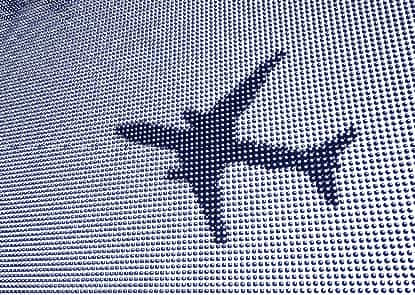Abu Dhabi Airport Freezone
1. What law established this freezone?
The following laws which established the Abu Dhabi Airport Business City are:
- Abu Dhabi Executive Council Decision No. 61/2010 which gives the Sky City the authority to grant free zone status to the properties owned by the Abu Dhabi Airports Company.
- Abu Dhabi Executive Council Decision No. 62/2010
- Abu Dhabi Executive Council Decision No. 63/2010
 2. What are the main internal regulations governing this freezone?
2. What are the main internal regulations governing this freezone?
The main internal regulation governing this free zone is the Abu Dhabi Airport Free Zone Companies Registration Regulation.
The provisions of this regulation address issues not covered by UAE Federal Law No. 2/2015 concerning commercial companies. All matters not addressed by the regulation are covered by UAE Federal Law No. 2/2015.
3. Does this freezone have any reciprocal arrangements with other freezones?
This free zone does not have any reciprocal arrangements with other free zones.
4. What are the key areas of UAE and Emirate legislation businesses operating in this freezone must still comply with? What are the most important examples of how this impacts operations?
The key areas of UAE Federal Legislation that businesses operating in this freezone must comply with are:
- UAE Federal Law No. 2/2015 concerning Commercial Companies (e.g. banks must be located within the country)
- UAE Federal Law No. 8/1980 regarding the regulation of labor relations and its amendments
- UAE Federal Law No. 4/2002 regarding the criminalization of money laundering (e.g. disclosure of currencies, penalties for money laundering).
In general, UAE Federal legislation will cover any matters not covered by the free zone's internal regulations.
5. What are the key UAE and Emirate onshore agencies a business operating in this freezone would need to register or comply with?
The key UAE and Emirate onshore agencies a business would need to register depends on the activity of that company. Some general onshore agencies which need to register include:
- Abu Dhabi Airports Company
- Abu Dhabi Municipality
- UAE General Directorate of Resident and Foreign Affairs
- Department of Municipal Affairs
- Notaries
6. How does a company set up in this freezone?
Companies wishing to establish themselves in this free zone must follow a three-step procedure.
Step 1: Submission of Documents
- Application form
- Business plan
- A copy of the manager's passport
- A passport-sized photo of the manager
- No objection letter from the current sponsor (in cases where the applicant is a resident in the UAE)
- Two years audited financial reports for a corporate entity or a certificate of reference from a personal bank of the individual shareholder.
Step 2:
- Payments must be completed: registration fees, licensing fees
- Documents concerning company's formation, ownership and management must be provided
Step 3:
- Lease agreement must be signed;
- Issuance of the business license upon completion of step one and step two
- Visa Processing
7. What features do companies set up in this freezone have?
Like all free zones, the Abu Dhabi Airport Free Zone allows 100% foreign company ownership, and 100% repatriation of capital and profits. The free zone also provides a 100% exemption for corporate tax, import and export tax, and personal income tax.
In addition, the free zone offers the following advantages:
- Unified administrative services
- Cargo clearance service
- Online customer service
- Proximity to the Airport
- On-site customs inspection
- International freight forwarders and logistics services
8. What can companies set up in this freezone do?
Activities relating to the following industries are authorized:
- Aerospace and Aviation
- Maintenance, Repair and Overhaul (MRO)
- Airport Services
- Airline Services
- Aircraft Interiors
- Cargo Freight and Logistics
- Consultancy
- Technology and ICT
- Transportation
- Warehousing and Distribution
- Marketing and Events
- Regional Headquarters
- Knowledge and Development
Businesses setting themselves up in this freezone are expected to operate in an activity relating to the aviation industry.
9. What can companies set up in this freezone not do?
Activities outside of their permitted license.
10. What types of business are allowed to operate in this freezone?
- Companies set up in this free zone can conduct activities relating to the following industries:
- Aerospace and Aviation
- Maintenance, Repair and Overhaul (MRO)
- Airport Services
- Airline Services
- Aircraft Interiors
- Cargo Freight and Logistics
- Consultancy
- Technology and ICT
- Transportation
- Warehousing and Distribution
- Marketing and Events
- Regional Headquarters
- Knowledge and Development
11. What inheritance laws apply in this freezone?
The general laws of the UAE are applicable (Islamic Sharia Law) if an area of law is not covered by the Ajman Freezone's regulations. A non-Muslim expatriate can request that the laws of their home country apply, as per the Personal Affairs Law, UAE Federal Law No. 28/2005.
12. What taxation applies?
The Abu Dhabi Airport Freezone allows for 100% foreign ownership, tax free (including corporate, import and export, and personal tax).
13. What accounting and auditing rules apply to businesses operating in this freezone?
 Businesses operating in this free zone must keep accounting records, and submit auditing reports at least once a year as per the provisions of Part 11 of the Abu Dhabi Airport Freezone Companies Registration Regulation.
Businesses operating in this free zone must keep accounting records, and submit auditing reports at least once a year as per the provisions of Part 11 of the Abu Dhabi Airport Freezone Companies Registration Regulation.
14. Where do businesses operating in this freezone generally locate their bank accounts?
Businesses operating in this freezone must select a bank in the UAE to open their bank accounts, as per the provisions set out in the Commercial Companies Law.
15. Are there any specific rules governing when moveable property is removed from the freezone area or transferred into the freezone area from another jurisdiction?
Businesses set up in the Abu Dhabi Airport Free Zone must keep their activities to within the free zone. In order to operate within the mainland, a local agent/distributor must be appointed.
16. Are any specific licenses required to operate as a specific type of company in this freezone?
The following licences are required to operate in this free zone:
- Trading Licences
- Light Industrial Licences
- Service Licences
- National Industrial Licences
The following types of companies are authorized:
- Freezone Limited Liability Company (Corporate)
- Freezone Limited Liability Company (Natural)
- Branch of local or foreign companies.
17. Is there any specific ongoing regulation or monitoring of firms operating as particular types of company by this freezone authority?
As per Part 15 of the Abu Dhabi Airport Free Zone Companies Registration Regulation, the freezone authority may appoint an inspector to investigate a company's business dynamics. The company's directors must produce records at an investigator's request.
18. How are disputes settled with companies in this freezone?
Disputes are settled through the traditional UAE courts, unless another platform for the settlement of disputes has been agreed on in the contact. A case against an Abu Dhabi Airport Freezone company should be filed with the courts of the Emirate of Abu Dhabi.
19. How are disputes between onshore companies and companies in this freezone settled?
Unless another platform for the settlement of disputes has been agreed on in the contact, such cases should be filed with the courts of the Emirate of Abu Dhabi.
20. What are the main rights and duties of an employer and employee working in this freezone?
The provisions of UAE Federal Law No. 8/1980 and its amendments apply to employers and employees in this free zone such as:
- Article 91: Employer must provide the employee with protective equipment, clothing, instructions on all other means of protection to protect him from hazards of injuries, hazards of fire and vocational diseases.
- Article 92: Employer must display at a conspicuous point detailed instructions, in Arabic and in a language understood by employees, concerning methods to prevent fire and protect employees from dangers.
- Article 93: Employer must provide each 100 employees with one medical aid box.
- Article 94, 96: Employer must provide proper cleanliness, ventilation, adequate illumination, potable water and toilets, clean atmosphere and precautionary measures against fire and electric current.
- Article 95: Employer must appoint one physician to do full medical checkups at least once every 6 months for employees exposed to an infection risk. Employer must record the results.
- Article 96: Employer must provide employees with means of medical care.
- Article 97-98: Employer (or his representative) must regularly inform employees of dangers related to their profession and provide written preventative measures.
- Article 99: Employer must forbid alcoholic drinks and intoxicated persons in the workplace.
21. How are employment disputes between employers and employees working in this freezone settled?
The UAE Labour Law, UAE Federal Law No. 8/1980 states that in the case of these disputes, an application must be filed with the Ministry of Labour in Abu Dhabi. If the parties are unable to solve the case by this manner, the case will be referred to the courts.
22. What entry qualifications and permits are required for staff working in this freezone?
Qualifications will depend on the employee's position and their company's license. An employee requires a visa/entry permit for which a personnel sponsorship agreement must be submitted. A residence permit must then be obtained; this requires getting an Emirates ID card and a medical check-up.
23. How are staff working within this freezone registered with the authorities?
Staff working within this free zone are registered under their company's name, which is registered in this free zone. The company's trade license and the employee's passport must be submitted to the Abu Dhabi Airport Free Zone Authority's Licensing Department to obtain the required visa.
24. What rules govern the remuneration and minimum benefits of staff working in this freezone?
UAE Federal Law No. 8/1980 and its amendments grant employees the right to obtain insurance and end of service benefits.
25. What rules govern the working time and leave of staff working in this freezone?
UAE Federal Law No. 8/1980 and its amendments give employees the right to at least one rest day per week, if an employee works on a Friday they can obtain an additional 50% of their wage. The maximum working hours for an employee is 40 hours per week. As for the leave of staff working in this free zone, if they have been employment for more than 6 months and less than a year, they are entitled to annual leave of two days per month and 30 days annually.
26. What are the main features of a property lease in this freezone?
The main features of a property lease in this free zone are the following:
- Availability of land plots for long-term leases
- Availability of warehouse facilities (360 m2 to 2880 m2)
- Availability of ready offices and workstations
A company must be incorporated in the freezone in order to lease a property.
27. Is it possible to apply for a building permit in this freezone? How is this done and what steps are required?
It is possible to apply for a building permit in this free zone, namely by making an application to the Abu Dhabi Municipality.
The following documents must be submitted:
- Approved site plan
- Urban planning council approval
- Commissioned letter signed by the owner
- Liability free certificate
28. What environmental requirements must construction companies building in this freezone consider, e.g. form of building, landscaping or building height?
The standards set out by the Abu Dhabi Environment, Health, and Safety Management System Policy, and the Abu Dhabi International Building Code must be complied with.
29. What are the key restrictions when leasing a property in this freezone?
There are several key restrictions when leasing a property at Abu Dhabi Airport Business City. A company must be incorporated within the freezone in order to lease property. Additionally, a company must (i) have share capital of AED 150,000 to 1,000,000, (ii) operate in an industry segment or be licensed for an activity which is permitted in Abu Dhabi Airport Business City, and (iii) be incorporated as one of the legal entities allowed in the Abu Dhabi Airport Business City.
 30. What are the rules governing the use of utilities in this freezone?
30. What are the rules governing the use of utilities in this freezone?
The use of utilities is determined based on actual usage in this free zone.
31. How do retail premises establish themselves in this freezone?
There are no specific restrictions prohibiting retail establishments from operating in this freezone. The same process would apply as for any other type of business.
32. Is it possible for hotels to operate in this freezone - how do they establish themselves?
It is possible for hotels to operate in this free zone. They establish themselves the same way other businesses would in this freezone.
Originally published on LexisNexis
 English
English
 عربي
عربي Русский
Русский 官话
官话 português
português
 Türk
Türk 










